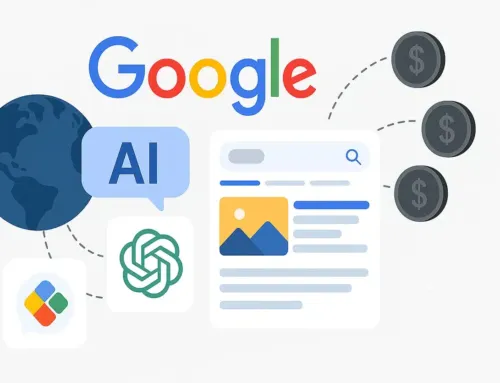Unmasking Misleading SEO Claims: The Truth Behind SEO That Actually Works

When Sean, who runs a bathroom renovation business in Brisbane, decided to invest in SEO, he engaged an agency that made bold, misleading SEO claims — including guaranteed page-one rankings in 30 days. They promised fast results and assured him they had a proven system — no need to worry about content.
At first, things looked fine. Blogs were going up, reports were coming in. But when Sean checked what they were actually publishing, he noticed something odd.
Articles like “Top Tapware Trends in Toowong” and “Best Bathroom Plants in Indooroopilly” were ranking — but no one was searching for them. None of it was driving real leads.
The agency had gamed the system by publishing irrelevant, low-competition content just to claim, “you’re on the first page of Google.” But it had nothing to do with what Sean’s actual customers were searching for.
Three months in, his traffic had all but disappeared, his leads had dried up, and the agency stopped offering any clear answers.
Sean was left frustrated — with a blog full of content that helped no one, and a website that wasn’t converting.
Unfortunately, his story isn’t unique.
In this guide, we’ll walk you through what real SEO looks like, how to spot misleading claims before they cost you, and how to build a strategy that leads to long-term growth — not false hope.
- The Rise of Misleading SEO Claims
- Common SEO Promises That Should Raise Red Flags
- Why Real SEO Takes Time (And Why That’s a Good Thing)
- The Real SEO Timeline
- What Happens When You Take Shortcuts?
- How to Spot a Trustworthy SEO Partner
- FAQs: Straight Answers You Deserve
- Final Thoughts: Do SEO Right, Or Don’t Do It At All
The Rise of Misleading SEO Claims
SEO is complex. And that’s exactly why so many shady operators get away with misleading promises. Most business owners don’t have time to dig into what “ranking #1” really takes.
So when someone comes along offering fast results, guaranteed rankings, or “Google insider methods,” it sounds tempting — especially if you’re already frustrated or desperate for leads.
But the truth?
There are no shortcuts in SEO that don’t come with a cost.
Common SEO Promises That Should Raise Red Flags
We’ve reviewed hundreds of SEO pitches over the years. The misleading SEO claims all seem to say the same things:
- “We guarantee first page rankings.”
- “We use secret, proven strategies Google doesn’t want you to know.”
- “You won’t need to change your website or content.”
- “We’ll handle everything behind the scenes — no need to worry.”
These aren’t just unrealistic. They’re dangerous. Any provider making promises like these is either:
Hiding their methods (usually black hat tactics), or they don’t fully understand SEO themselves.
Why Real SEO Takes Time (And Why That’s a Good Thing)
Unlike paid ads, which start and stop instantly, SEO builds value over time. Think of it like investing in property — it appreciates the more you improve and maintain it.
What goes into proper SEO?
- Technical setup: Your website needs to be fast, secure, mobile-friendly, and easy to crawl.
- Content strategy: You need to create pages that answer real questions and provide useful information.
- Link building: Quality websites need to reference your content — naturally, not via spammy link schemes.
- User experience (UX): Google notices if people stay on your site or bounce straight off.
And just like building a house, you can’t skip steps or expect it to be done in a week.
The Real SEO Timeline
One of the biggest lies in dodgy SEO is the promise of instant results. Here’s what the real journey looks like:
Months 1–3:
- Full website audit
- Keyword research
- Technical fixes
- Begin content planning
- Start publishing content
- First signs of rankings
Months 4–6:
- Continue to create and publish content
- Signs of increased rankings
- Traffic slowly increases
Months 6–12:
- Authority grows
- Rankings stabilise
- Lead generation begins
12+ Months:
Ongoing content and SEO deliver consistent traffic, leads, and growth
Is this slower than a Google Ads campaign? Yes. But it’s organic, sustainable, and more cost-effective over time.
What Happens When You Take Shortcuts?
Let’s go back to Sean, the bathroom renovation specialist from Brisbane. The agency he hired didn’t just publish unhelpful content — they built an SEO campaign around low-quality blogs targeting irrelevant keywords.
Instead of focusing on what potential clients were actually searching for — like “bathroom renovations Brisbane” or “bathroom waterproofing specialist” — they published articles like “Top Tapware Trends In Toowong” and “Best Bathroom Plants in Indooroopilly”.
Why? Because these topics had little competition. The agency could get them to page one easily and claim “we got you results” — even though no one was searching for them. There were no conversions. No qualified leads. Just meaningless rankings.
But that wasn’t the worst part.
To prop up those articles, the agency used shady link-building tactics, likely through a private blog network (PBN). That eventually triggered a penalty from Google — and everything collapsed.
🔻 Sean’s domain was penalised.
🔍 His rankings vanished.
🚫 His organic traffic disappeared.
📉 His domain authority plummeted.
By the time Sean contacted Scorched Media, his site was barely visible in search at all.
It took us six months to clean up the damage:
- We removed or disavowed toxic backlinks
- Rewrote or removed irrelevant blog content
- Rebuilt trust with Google through ethical link-building and targeted service pages
- And implemented a strategy focused on what real customers actually search for.
It wasn’t quick. But it worked. Within months, Sean’s site began ranking for meaningful, high-converting keywords — and leads started coming in again.
What Real SEO Looks Like
Real SEO isn’t about gaming the system. It’s about building trust, solving real problems, and making your website genuinely helpful.
Here’s what that looks like in practice:
1. Helpful, Honest Content
Create content that answers the exact questions your customers are asking.Think: “How do I choose the right accountant in Brisbane?” or “What’s the difference between custom and template websites?”
Use headings, bullet points, and plain English. Update old pages regularly. Don’t publish for the sake of it — publish to help.
2. Ethical Link Building
Instead of buying links, earn them:
- Share infographics that other sites want to embed
- Get featured in industry news or directories
- Guest post on relevant blogs
A single link from a trusted site is worth more than 100 spammy ones.
3. User Experience That Keeps People Around
Google tracks behaviour. If people land on your site and leave straight away, that’s a bad signal.
Fix this by:
- Improving mobile navigation
- Making sure pages load in under 3 seconds
- Using clear headings and calls to action
- Removing clutter and distractions
4. Tracking and Adjusting
Good SEO is never “set and forget.”Use Google Analytics and Search Console to monitor performance, fix issues, and refine your strategy month by month.
How to Spot a Trustworthy SEO Partner
The best SEO providers don’t overpromise — they educate. They walk you through what they’re doing, explain timelines, and measure progress clearly.
Here’s how to tell if you’ve found someone good:
✅ They explain their link-building and content strategy
✅ They provide regular reports — not just rankings, but traffic and conversions
✅ They ask about your business goals before quoting
✅ They never guarantee #1 rankings
Ask this simple question:
“What happens if we don’t hit our targets in 6 months?”
A good partner will tell you the truth — not run from it.
FAQs: Straight Answers You Deserve
How long does SEO take to show results?
Most sites start seeing progress in 4–6 months, with real traction at the 12-month mark.
Is buying backlinks ever okay?
No. Google penalises bought links, and it’s hard to recover your domain’s trust.
Is SEO better than Google Ads?
Both have their place. SEO is long-term, while Ads give instant visibility. Many businesses benefit from both.
How do I know if my SEO is working?
You should see increases in organic traffic, keyword rankings, time on site, and conversions — tracked monthly.
What are black-hat SEO tactics I should avoid?
Tactics like keyword stuffing, cloaking, and spammy links are red flags — often hidden behind misleading SEO claims. They can lead to penalties and long-term damage.
Why is my site not ranking even after months of SEO?
SEO depends on competition, your website’s history, and content quality. If you were promised fast results, you may have fallen for a misleading SEO claim. A proper audit will reveal the gaps.
Can I use AI tools like ChatGPT to write my SEO content?
Tools like ChatGPT can support content creation, but relying on AI alone can lead to low-quality pages — especially if you’re promised results without human input. Google rewards content that is helpful, accurate, and written for users. Be cautious of misleading SEO claims that promote “AI-only” strategies.
Final Thoughts: Do SEO Right, Or Don’t Do It At All
At Scorched Media, we’ve seen too many businesses hurt by misleading SEO claims and false promises. That’s why we focus on education, transparency, and doing things the right way — even if it takes longer.
SEO done right isn’t flashy. It’s not secretive. And it doesn’t rely on gimmicks.
It’s about:
- Showing up where your customers are searching
- Building trust, one page at a time
- Growing steadily — and sustainably
If you’ve been burned before, we get it. Let us show you the difference that honest, ethical SEO can make.
Reach out to our expert team today and let’s talk.




